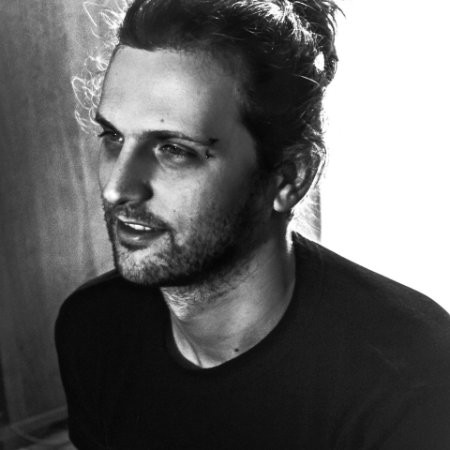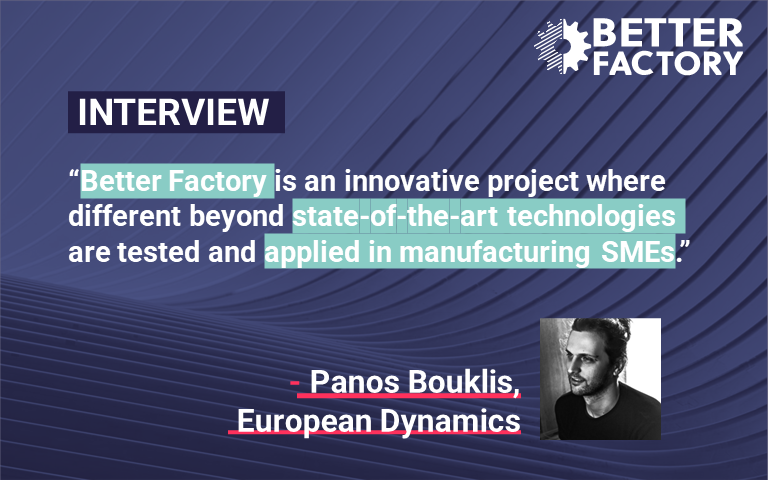
Welcome to our interview series with the partners running Better Factory. Today we are lucky to be joined by one of our all-star team, Panos Bouklis from European Dynamics. Today in this interview we will learn more about this organisation and their role in the project!
Thank you for joining us today! Please could you give us a short introduction to European Dynamics working in the field of e-government, in your own words, and what is your role here?
European Dynamics is a leading Information Technologies service provider and software developer commercialising complex IT systems and software products in a range of different sectors, like e-government, banking, law enforcement, taxation, ICT security, and many others. In the last decade, the R&D department has been researching ways to apply the company’s expertise also in the manufacturing domain, especially concerning digitisation and automation.
Thank you! To someone reading this who has never heard of Better Factory before, how would you describe it in simple terms, and why do you feel it is significant?
Better Factory is an innovative project where different beyond state-of-the-art technologies are tested and applied in manufacturing SMEs. A very special topic that Better Factory is working on is the collaboration between manufacturers, technology providers and artists, trying to bring innovative and creative solutions and products in the portfolio of the European manufacturing SMEs.
European Dynamics the core partner leading WP2, ‘Extension of Marketplace functions’, whereby the RAMP platform is being made more “valuable”, “satisfactory” and building a more “trustful collaboration experience” between its users. Could you tell us about the main challenges you foresee here?
The main challenge in making RAMP truly valuable for the automation value chain is that it cannot be just a marketplace where manufacturers find service providers for automation solutions. It needs to be an advanced tool for them, allowing them to collaborate effectively online, and provide features that facilitate and provide value for their everyday work. In this sense different tools and concepts have been tested during the projects, helping us to get insights on what is truly useful in the market.
Better Factory is an innovative project where different beyond state-of-the-art technologies are tested and applied in manufacturing SMEs
How do you see the impact of RAMP on SMEs in Europe and beyond, after the project end?
We have indications that our target groups are interested in using RAMP commercially. That is both technology providers who want to integrate RAMP features as part of their offers and manufacturers that want to directly use RAMP. RAMP’s differentiator point is exactly that it is not just a marketplace where someone would buy a service, but a holistic platform to facilitate the collaboration and everyday interaction between the value chain participants.
How do you see the future of intelligent industrial automation in Europe as a whole, over the next 5-10 years? And how do you think Better Factory can contribute to its development?
I believe the most important long-term impact of Better Factory concerns the collaboration of artists. Manufacturing sector in Europe would have difficulties competing purely on prices with the East. The involvement of artists leverages creativity and innovation and allows SMEs to offer more personalised, higher quality, as well as additional services and features that make the European products stand out from the competition.
No doubt there will be some readers that are keen to meet you to talk more about the project and your role in it. Which events can people find you at in 2024, and beyond?
We will be at the Better Factory booth at the ERF 2024, 13-15 March at Rimini, Italy. You will find me also at the “Platforms and networks for smart robots uptake” session on the 14th!
If you’d like to learn more about our partners or KTEs, just head back to the Insights section to read more interviews!

